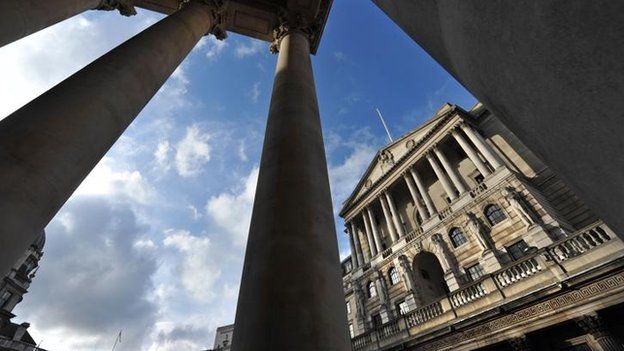UK interest rates kept at record low
- Published

UK interest rates have been held at 0.5% for another month by the Bank of England.
The decision by the Monetary Policy Committee comes more than six years after the record low was introduced.
The decision, normally announced each month on a Thursday, was delayed because of the election.
The half-dozen years of ultra-low interest rates have cut returns on savings, but mortgage borrowers have benefited from lower repayments.
The Bank left the scale of its quantitative easing (QE) stimulus programme unchanged at £375bn.
It will release the minutes of the May meeting in just under two weeks' time.
Attention will now turn to the Bank's quarterly inflation report on Wednesday. The report will show how the Bank expects the rate of inflation to move over the next few years, and will be studied for clues as to when interest rates might rise.
The Bank of England is charged by the government with keeping inflation close to a target rate of 2%, although the rate stood at 0% in both February and March.
The Bank has already warned that consumer price inflation could turn negative at some point in the coming months, because of falls in the price of oil since last year and the continuing supermarket price war.
"The decision to keep Bank Rate on hold was eminently predictable," said Martin Beck, senior economic advisor to the EY Item Club.
"Inflation remains resolutely absent, the long-awaited revival in pay growth continues to be elusive and signs of weakness in the global economy further caution against tighter monetary policy.
"We continue to expect rates to remain on hold until at least the first quarter of next year."
- Published8 May 2015
- Published6 May 2015
- Published5 May 2015